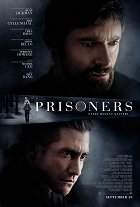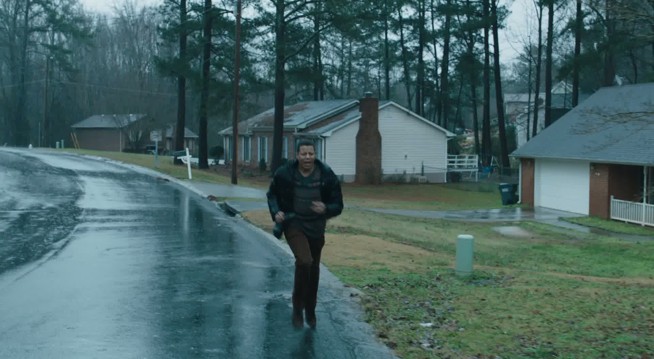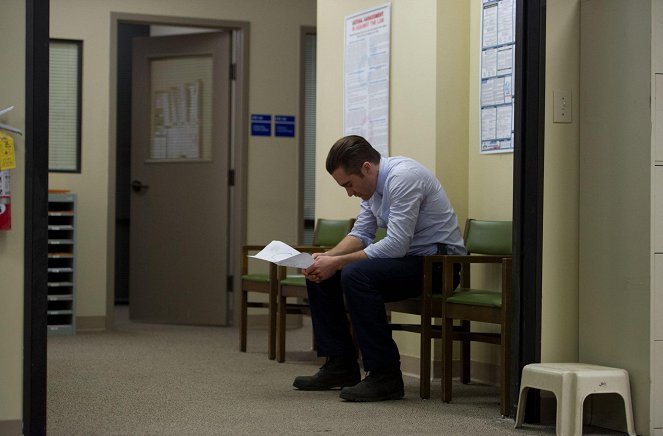Directed by:
Denis VilleneuveScreenplay:
Aaron GuzikowskiCinematography:
Roger DeakinsComposer:
Jóhann JóhannssonCast:
Hugh Jackman, Jake Gyllenhaal, Viola Davis, Maria Bello, Terrence Howard, Melissa Leo, Paul Dano, Dylan Minnette, Zoë Soul, Erin Gerasimovich, Kyla-Drew (more)VOD (3)
Plots(1)
How far would you go to protect your family? Keller Dover is facing every parent's worst nightmare. His six-year-old daughter, Anna, is missing, together with her young friend, Joy, and as minutes turn to hours, panic sets in. The only lead is a dilapidated RV that had earlier been parked on their street. Heading the investigation, Detective Loki arrests its driver, Alex Jones, but a lack of evidence forces his release. As the police pursue multiple leads and pressure mounts, knowing his child's life is at stake the frantic Dover decides he has no choice but to take matters into his own hands. But just how far will this desperate father go to protect his family? (official distributor synopsis)
(more)Videos (5)
Reviews (15)
There are always a hundred and one glitches to grumble about with Villeneuve’s movies; from the unnecessary length, through predictability to occasional idiotic behavior of the characters. But it also applies that these things get under your skin and begin to rot and rot weeks after watching them. And paradoxically the impression from them gradually gets stronger. So much so that after a while they seem much better than they had seemed at the time you watched them. But this doesn’t apply to Prisoners, which doesn’t get under your skin; well, maybe does, but just the atmosphere and nothing else. Instead of feeling uneasy all the way home from the movie theater “whether the sprogs are sleeping snugly in their beds" and then holding them tighter than normally by their hand for a couple of days because “you never know", satisfaction begins to sink in about this solid piece of Fincherism, although still plagued but hundred and one snags.
()
Very similar style to Clint Eastwood's Mystic River, just as austere and economical, with utmost emphasis on editing and minimalist musical composition. While that film is more complex and interconnected in terms of screenplay, Prisoners relies on a linear plot and open, long scenes full of emotions, when the camera does not move. It is dense, strong, and uncompromising. However, it is also filmed with sensitivity, with an exceptionally effective ensemble cast. Hugh Jackman gives a great performance.
()
A captivating drama in which it wasn't about all the surprises and revelations (the observant viewer receives various clues on an ongoing basis, and it's just up to him or her how to handle them), but rather what they do with the characters. I like films like that. Hugh Jackman and Jake Gyllenhaal are perfect and I believed absolutely everything they did, and the combination of Villeneuve's directing, Deakin’s camera and Jóhannsson's music once again ensured a million-dollar atmosphere. It was dark, dirty, dense and I'm glad no one made a stretched series out of it, but instead one proper film.
()
Prisoners bears the hallmarks of a high-quality psychological drama and a very good crime thriller. However, it ultimately falls short on both genre levels. As a character-focused film, it fails due to the restrained (even in the context of the situations in which the characters find themselves) or, conversely, exceedingly prudent actions of the protagonists. With the exception of Jackman, about whom the hunting prologue tells us most of what’s important, and Gyllenhaal, who adds a peculiar element to his performance with suspiciously frequent blinking (which could indicate that he has a dark past, or that he simply has a facial tick), the actors in the film are dead weight. They do not help with evoking the morally ambivalent feelings that comprise the core of the narrative, as Villeneuve doesn’t bother to better justify their infrequent presence or involve them in the main action. Keller’s wife pays the highest price for the utilitarian handling of the characters. Of all the actors, Maria Bello overacts most aggressively, so we needn’t feel sorry for her as she sometimes wearily and sometimes hysterically staggers her way through the film. ___ The film’s sense of gravitas is apparently supposed to be bolstered by long shots (of tree bark, for example), frequent fade-outs, heavy rain, the use of ambient noise instead of non-diegetic music (which is similarly cacophonous as the aforementioned noise, so – like in Fincher’s The Girl with the Dragon Tattoo – it is sometimes difficult to tell where one ends and the other begins). These are not very original means of evoking a gloomy atmosphere, but they generally serve the purpose. However, Villeneuve overuses them and because of that – among other things – the film fails as a procedural thriller. ___ Shots intended to shape the atmosphere predominate over shots that convey any determinative information. Furthermore, most of the essential revelations are based on unconvincing coincidences rather than on collecting and analysing evidence. The length of the investigation (and thus of the film) is not proportionate to the manner of revealing the perpetrator. At the end, you will come to the most powerful realisation that the whole investigative storyline, with all of its dead ends and ambiguous clues, was designed solely for the purpose of forcing the characters to face certain moral dilemmas so that they would both experience and do something very unpleasant and somehow redeem themselves after staggering out of the labyrinth of (a)morality (this involves one of the many traditional religious motifs that the film works with, along with serpents, crucifixes and Bible quotes). ___ If Villeneuve cared primarily about the psychological level of the narrative, why does he devote so much space to the investigative level, spending most of the film trying to convince us that this is a crime movie after all? The two different levels ultimately weaken each other. Disinterest in the past and deeply rooted motivations of the characters can be accepted in a procedural, but not in a psychological film. Holes in the logic would not matter so much in a psychological study of a person in an extreme situation, but they are distracting in a detective story. Instead of one consistent film, Villeneuve made two films, both of which are thoroughly unsatisfying. 70%
()
(less)
(more)
A film about fear, uncertainty, and demons that lurk more or less deeply within each of us. I have considered Villeneuve to be one of the most talented directors of today for some time now, and even though he is capable of creating a better atmosphere, all you need is to watch the scene of the frantic car ride with a blinded driver across the city to realize whose film you are about to see. Similarly, the screenplay presents very decent work in its genre, which is capable of surprising and being original. The creators patiently build tension, anxiety, and a sense of threat, letting their detective stumble and convincingly fulfill the requirements of the thriller genre. For parents, there is no nightmare worse than the disappearance of a child, and the filmmakers spare none of their characters. Without drowning in sentiment, they manage to intensify emotions to the maximum. Another motif strongly resonating throughout the film is the temptation to take investigation and justice into one's own hands. The father of the lost child succumbs to this desire, and the screenwriter finds some justification for torture in the name of higher goals. By my standards, that takes away a star. Of the actors, the most notable is Jake Gyllenhaal, who delivers an outstanding performance and is another reason to devote more than 150 minutes of your time to this crime story. Overall impression: 85%.
()



Ads